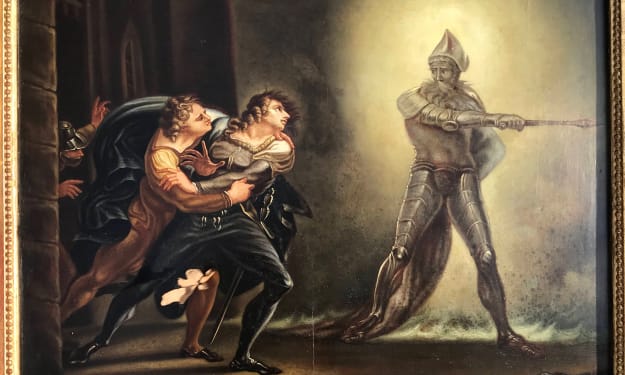The Real Magic behind "A Midsummer Night's Dream" by W. Shakespeare
Why Everybody Should Read This Shakespearian Play

A group of young individuals clandestinely venture into the forest, where they consume substances that alter their state of mind. They then experience a change in their romantic relationships and encounter beings from an alternate dimension. "A Midsummer's Night's Dream" showcases Shakespeare's exploration of psychedelia, resulting in a delightful experience both on stage and in written form. Originally performed in the 1590s, this play stands out as one of Shakespeare's most playful works, brimming with deception, insanity, and enchantment. Unfolding over the course of a single night, "Midsummer" maintains a lively pace. The plot revolves around collisions and disintegrations, as characters from different realms are brought together and torn apart. Shakespeare employs these patterns to satirize the characters' self-absorption and challenge authority in a comical manner.
The setting of the action takes place in Ancient Greece, but similar to many of Shakespeare's plays, it reflects his contemporary concerns. The enchanting woods at night disrupt the boundaries between different groups, resulting in bizarre outcomes. In this play, the bard plays with the rigid social hierarchy of his time by turning the society of three distinct groups upside-down, creating a world where no mortal has control. The play begins with young Hermia expressing her anger towards her father Egeus and Theseus, the King of Athens, who have forbidden her to marry her lover Lysander. Hermia has no interest in her father's choice of Demetrius for her, but her best friend Helena certainly does. Fueled by their frustration with their elders, Hermia and Lysander elope under the cover of darkness, with Demetrius hot on their trail. The situation becomes even more complicated when Helena decides to follow them into the woods, hoping to win Demetrius' heart. At this point, the woods become crowded as the lovers share the space with a group of "rude mechanicals" - a troupe of workers drunkenly rehearsing a play, led by the cheerful Nick Bottom. Unbeknownst to them, the humans have entered the realm of the fairies. Despite their magical splendor, Oberon and Titania, the king and queen of the fairies, have their own romantic problems. Oberon, consumed by jealousy and unable to control Titania, commands the mischievous Puck to squeeze the juice of a magical flower over her eyes. When she awakens, she will fall in love with the first thing she sees. In his mission, Puck gleefully sprinkles the juice over the sleeping Demetrius and Lysander, and for good measure, transforms Bottom's head into that of a donkey.
Upon awakening, a night filled with chaos ensues, encompassing shattered hearts, mistaken identities, and transformations. Amongst all the characters, Bottom seems to fare the best. When the enchanted Titania sets her eyes on him, she summons her fairies to shower him with wine and treasures, sweeping the transfigured donkeyman off his feet. "pluck the wings from painted butterflies/ To fan the moonbeams from his sleeping eyes. Nod to him, elves, and do him courtesies." While magic serves as the catalyst for the events, the play reflects the true drama of the lengths we go for love, as well as the nonsensical behavior of those under its spell. The moon watches over the proceedings "like a silver bow," symbolizing erratic behavior, the darker aspects of love, and the enchanting allure of a world where conventional rules do not apply. Although the characters eventually regain their senses, "A Midsummer Night's Dream" raises the question of how much control we truly have over our daily lives. However, it is not the more realistically portrayed lovers, rulers, or workers who have the final say, but the mischievous Puck who questions whether we can ever fully trust what we perceive: "If we shadows have offended, Think but this and all is mended: That you have but slumbered here While these visions did appear." In doing so, he evokes the sensation of entering into the magical realm of theater, where the line between illusion and reality blurs, and presents the possibility that life itself may be nothing more than a dream.





Comments (1)
Very creative, Fascinating story